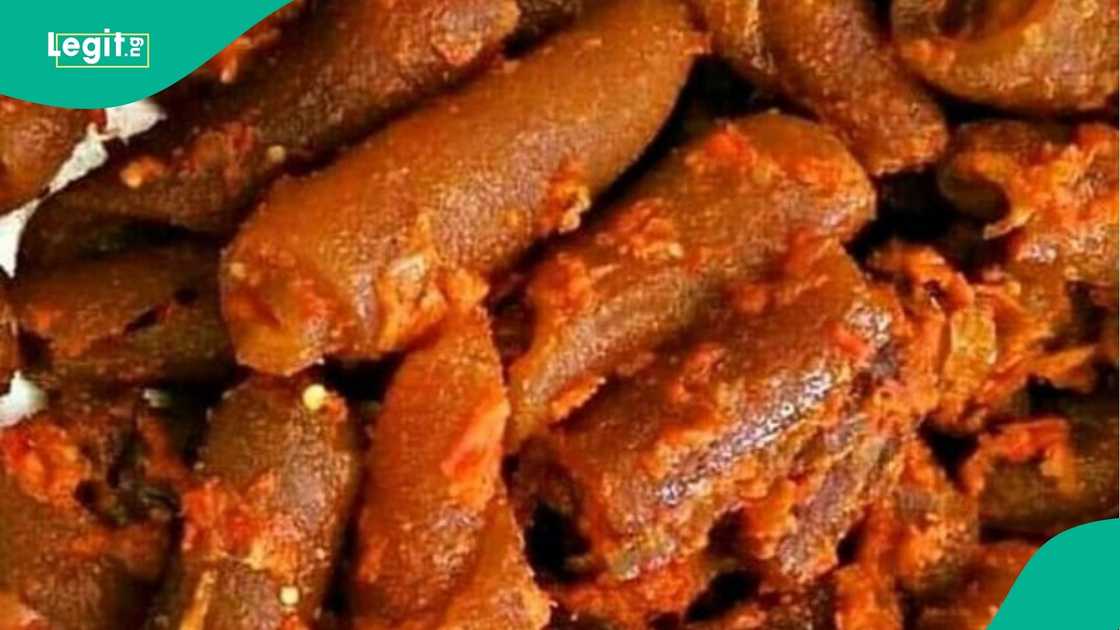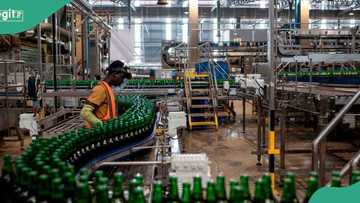FG Explains How Ponmo Consumption Threatens Nigeria’s Leather Industry
- The federal government has said that the consumption of ponmo is a threat to Nigeria’s leather industry
- The Raw Materials Research and Development Council, a government agency, has launched the National Campaign Against the Consumption of Ponmo
- The Director General of the council said ponmo has little or no nutritional value, and cow skins used in making ponmo could be of better value in the leather industry
The federal government has said that consumption of hides and skins, popularly known as Ponmo, is a threat to the growth of the leather industry in Nigeria.
Prof. Nnanyelugo Ike-mounso, the Director-General of the Raw Materials Research and Development Council (RMRDC), presented the argument at an event, tagged the National Campaign Against the Consumption of Ponmo, held on Thursday in Abuja.

Source: Original
Ikemounso said Nigeria’s leather industry is currently valued at $2.79 billion and is projected to grow to $4.96 billion by 2033, but the consumption of Ponmo by Nigerians may derail this growth.

Read also
Nigeria’s big comeback: NUPRC’s 2025 oil licensing round ignites global investor confidence
He explained the local makers of leather are deprived of sufficient raw materials — cowhides and skins — because they are diverted to the processing of Ponmo.
He added that the diversion also affects Nigeria’s competitiveness in the global leather market, which is currently valued between $420 billion and $1 trillion.
How Nigeria can increase share in leather market
The DG explained that there is a need for policy direction, availability of raw materials and infrastructure, if Nigeria were to increase its share of the global leather market.
He clarified that the campaign was not organised to discourage the consumption of ponmo by those who like it, but to advocate improved supply of hides and skins to productive local industries for the benefit of the national economy.
The campaign against the consumption of ponmo, with the slogan “Wear, Not Eat Your Leather”, was launched by the council as part of efforts to strengthen Nigeria’s industries and reduce dependence on imported raw materials.
“This campaign is calling for an intervention to prioritise the industrial use of hides and skins, especially leather production,” the DG said.
He said the leather industry has not fully maximised its potential for job creation and high export earnings.
Ponmo has low nutritional benefits
Ikemounso further argued that ponmo has little or no nutritional value, even though it is a popular delicacy in Nigeria.

Source: Original
He stressed that it merely has an insignificant amount of protein or micronutrients, adding that it is often processed with chemicals and other substances that are harmful.
He said:
“It is worrisome that harmful substances such as formalin and diesel are often used in the processing and preservation of hides.”
These preservation and processing methods, he explained, pose severe health risks and may result in organ damage or cancer.
Ponmo linked to Anthrax disease
In 2023, Legit.ng reported that the federal government warned Nigerians against eating ponmo on the basis that it had been linked to a disease known as Anthrax.
The disease broke out in neighbouring West African countries, but did not spread into Nigeria.
The National Agency for Food and Drug Administration and Control (NAFDAC) had earlier warned that some ponmo imported into the country contained harmful chemicals.
Source: Legit.ng



